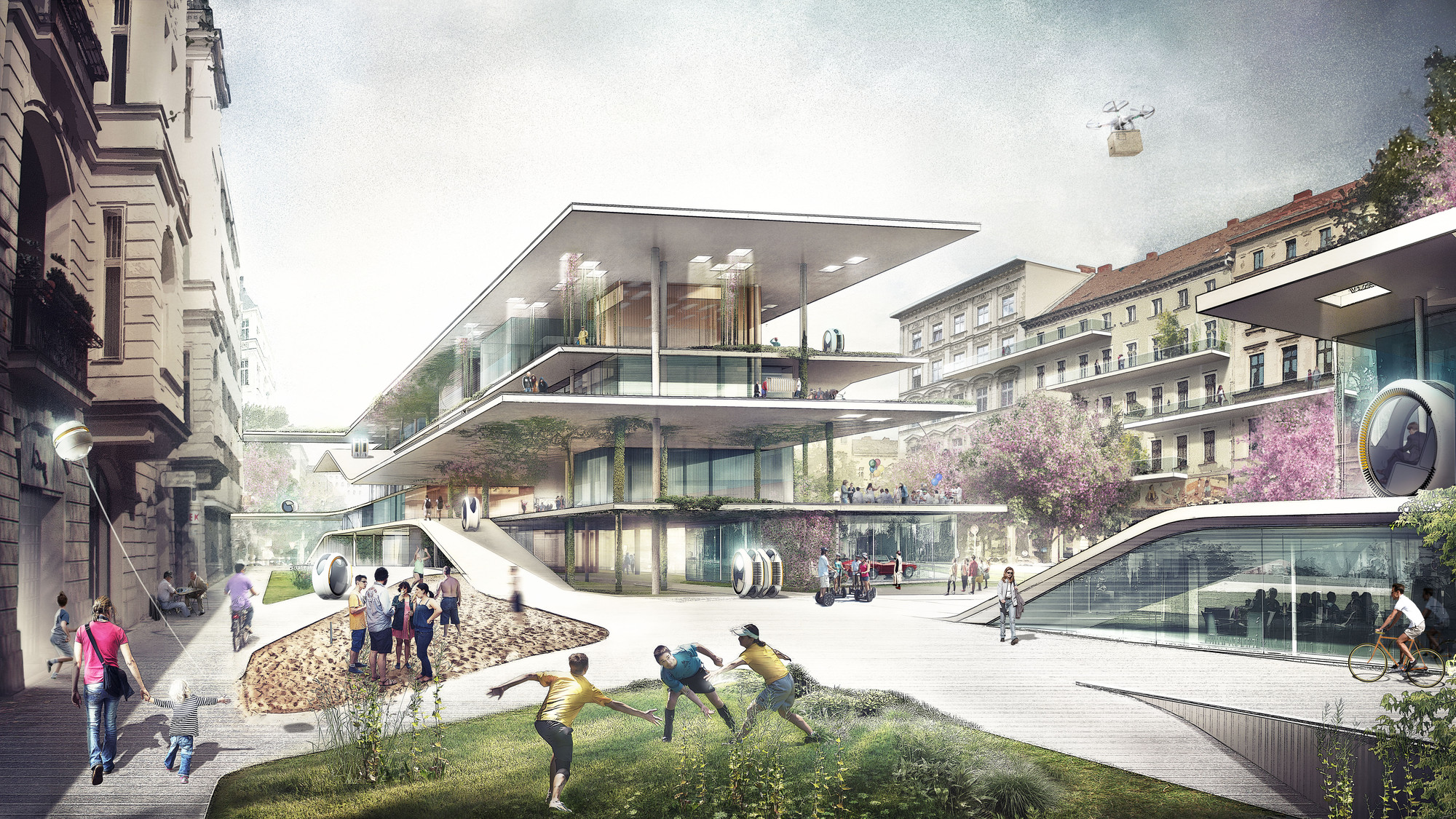
In the race to bring driverless cars from a futuristic fantasy to a present-day reality, developers have touted a plethora of advantages, from reduced traffic congestion on roads to improved safety thanks to the elimination of human error. But the potential widespread implementation of driverless cars could also have profound impacts on the form of our urban environments, fundamentally reshaping infrastructure and land use. As recently as a year ago, this new technology was seen as decades away; however, recently Elon Musk, CEO of electric car maker Tesla, predicted that driverless cars will be capable of making cross-country treks within about two years, and a pilot program in the United Kingdom city of Milton Keynes plans to launch a fleet of driverless pod-taxis by 2018, matching Musk’s timeline.
The driverless car future could be just around the corner, and the normally slow-changing infrastructure of cities could be forced to apply quick fixes to adapt. At the same time, the full potential of driverless cars cannot be realized without implementing significant changes to the urban fabric. So how will driverless cars change how our cities work, and how will our cities adapt to accommodate them?











